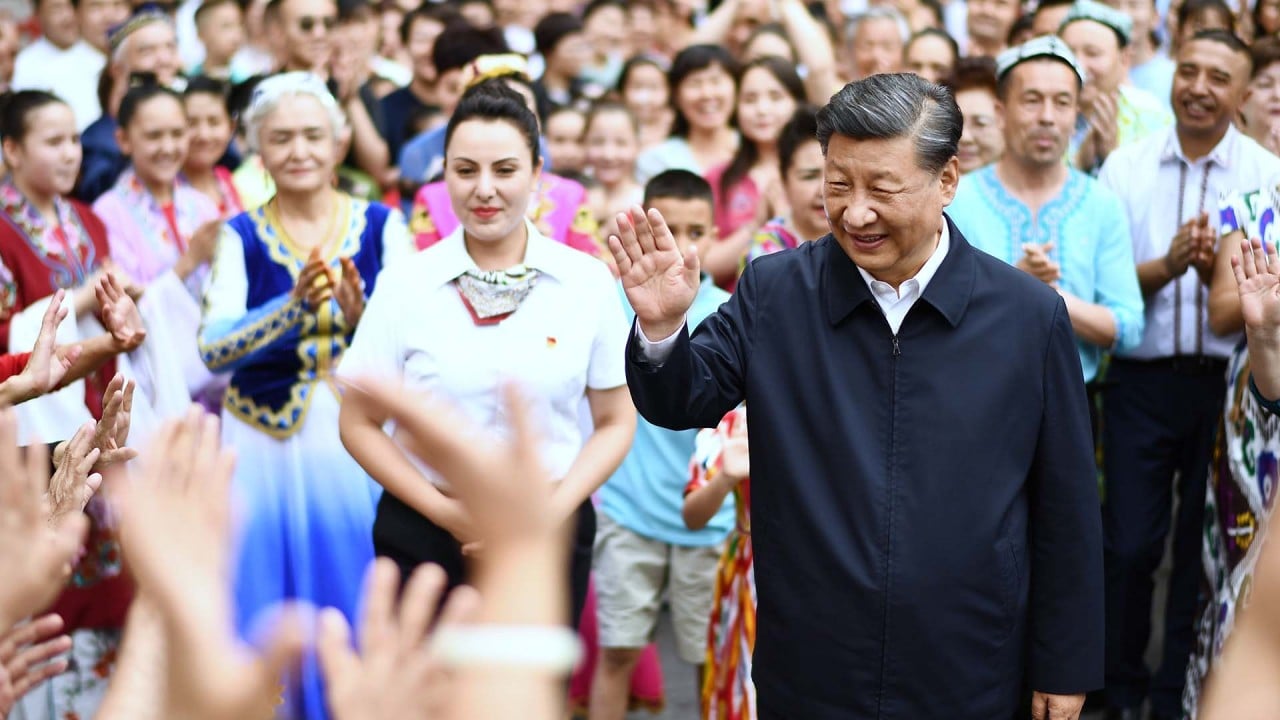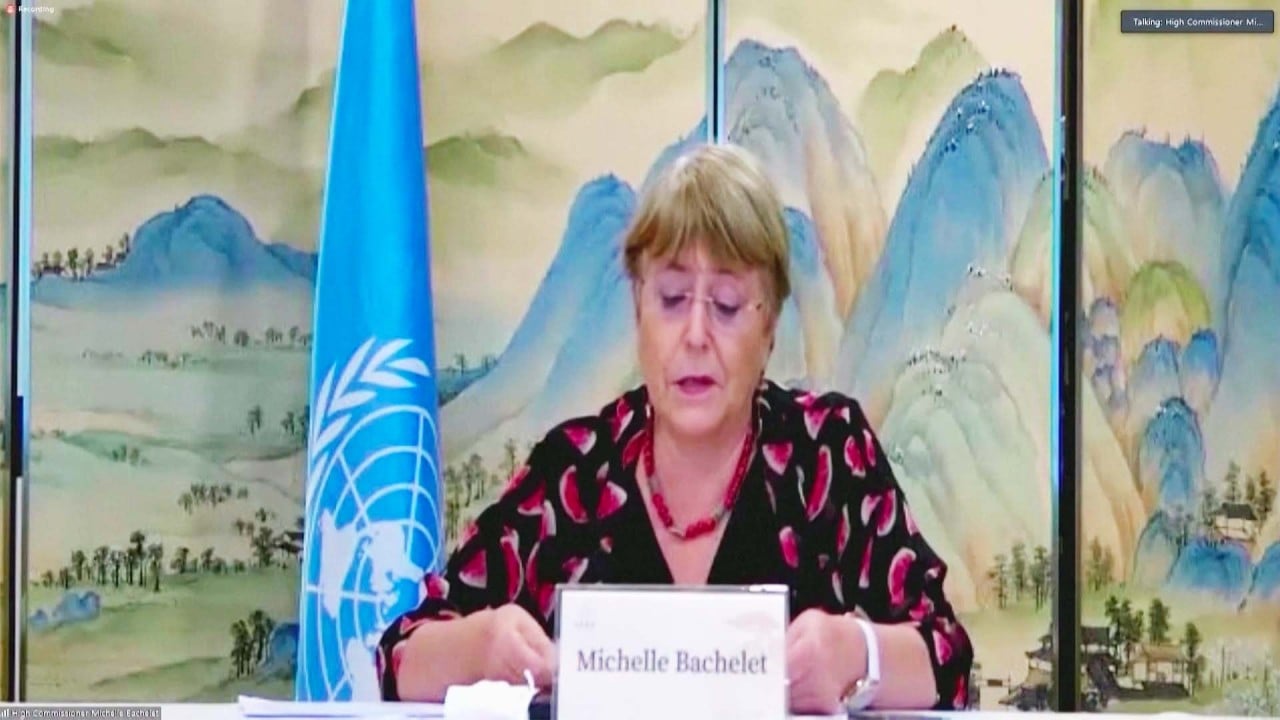
China lobbying behind scenes at UN to block Xinjiang rights report’s publication, document shows
- Tightly held, highly anticipated and often delayed, formal assessment of situation in region follows human rights chief’s controversial visit
- Fight over UN report comes as Washington policymakers show no signs of easing off their efforts to punish Beijing over alleged abuses
“We strongly urge Madame High Commissioner not to publish such an assessment.”
The document was first reported by Reuters and seen by the South China Morning Post.
Bachelet had planned to update the report further after her trip to Xinjiang and then send it to the Chinese government to review for “factual comments” before publication. It is unclear if Beijing has seen the report yet.
“As far as I understand, China is lobbying very hard in Geneva to kill the report,” said a senior European diplomat. “So will there be a report? I’m not sure.”
“The UN system today is very dependent on China, which is a problem,” the person added.
A State Department spokesperson on Wednesday said the international community had been calling on Bachelet to release the report “for months” but that it had remained unavailable “despite frequent assurances by the Office of the High Commissioner that the report would be released in short order”.
“We call on the High Commissioner to release the report without delay,” the spokesperson added. “And we are highly concerned about any effort by Beijing to suppress the report’s release.”

Asked about the document and report, Chinese foreign ministry spokesman Wang Wenbin said in a regular briefing in Beijing on Wednesday that people in Xinjiang were living “a happy and fulfilling life” and that China “firmly opposes smears and attacks against China using disinformation”.
A UN Human Rights Council spokesman, Jeremy Laurence, said the report would be published before the end of Bachelet’s term, which is set to end on August 31.
“We have no comment concerning the document raised in the Reuters story,” he said.
The fight over the UN report comes as policymakers in Washington show no signs of easing off their efforts to punish Beijing over the rights situation in Xinjiang.
In a survey of 34 leading US fashion companies published on Tuesday, more than 85 per cent of the respondents said they planned to cut their cotton apparel imports from China because of the law. Xinjiang produces about one-fifth of the world’s cotton.
Also on Tuesday, the Hong Kong-based textile company Changji Esquel was blocked by a US federal appellate judge from its efforts to be removed from Washington’s so-called “entity list” restricting exports to firms.
In a statement, the company criticised the US government’s “shoddy enforcement action, which relied on a convenient trope, paltry evidence, and poor fact-finding”.
Additional reporting by Robert Delaney




